Jewish History
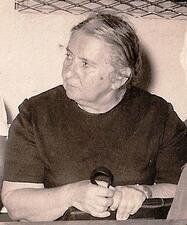
Rivka Guber
Through her work as a soldier, writer, teacher, and volunteer supporting immigrants, Rivka Guber exhibited selflessness for her neighbors and for the young State of Israel as a whole, earning her the title “Mother of the Sons” and the respect of the nation.
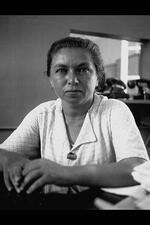
Bracha Habas
Bracha Habas was an educator and one of the first professional women journalists in Erez Israel. She was a member of Davar’s editorial board and the co-founder of its children’s newspaper, Davar le-Yeladim. Enumerating on Habas’s 48 publications, Rahel Adir described her as “the recorder of Yishuv history.”
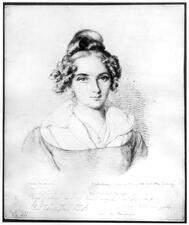
Habsburg Monarchy: Nineteenth to Twentieth Centuries
Jewish women in the Habsburg Monarchy experienced the stresses and strains of nineteenth- and twentieth-century Jewish life as Jews, as women of their particular social classes, and as inhabitants of the different regions of the Monarchy. In some regions, they modernized and acculturated, but the overwhelming majority remained deeply pious, traditional Jews.
Hadassah (Spira Epstein)
Hadassah Spira Epstein was a major dance artist of the twentieth century, a performer of Jewish, Hindu, and other ethnic dance forms, and a leading force in presenting the dance of other cultures to the American public. She was a pioneer in bringing Jewish dance to the United States and was recognized as such in the first U.S. Congress on Jewish Dance held in New York City in 1949.
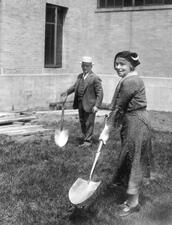
Hadassah in the United States
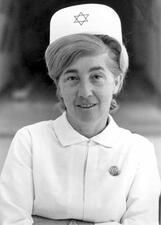
Hadassah School of Nursing: First Graduating Class
Nursing was not recognized as a profession in Israel until 1918, when the American Zionist Medical Unit, which later became the Hadassah Medical Organization, opened a nursing school. The first graduates were the leaders and pioneers of the nursing profession in Israel.
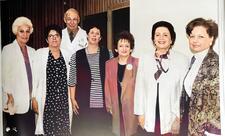
Hadassah: Yishuv to the Present Day
Hadassah, the Women’s Zionist Organization of America (HWZOA) has a lengthy history of activity in the Yishuv and Israel, going back to 1913, about a year after it was founded in New York, and continuing to this day. This activity, outstanding in its scope, continuity, stability, and diversity, encompasses efforts in the sphere of health and medical services and in the welfare of children and youth.
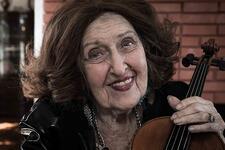
Ida Haendel
In a life that spanned the greater part of the twentieth century, Ida Haendel was one of the most enduring idols of the concert platform, an inspiration to both performers and music-lovers through her many recordings as well as her live performances and broadcasts. A musical prodigy who began performing at age four, Haendel continued her passionate violin performances into her late eighties.

Haganah
Women played many different roles in the operations of the Haganah. Though their stories are frequently excluded from the story of the Jewish paramilitary organization in British Mandate Palestine, women served as caretakers and nurses, as well as fighters and commanders.
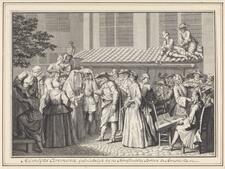
Halakhic Decisions on Family Matters in Medieval Jewish Society
Across the medieval Jewish world, rabbis used takkanot (rabbinic decrees) to address urgent needs in family life among their Jewish communities. These takkanot are key historical sources for understanding the changing roles of women in the medieval Jewish world.
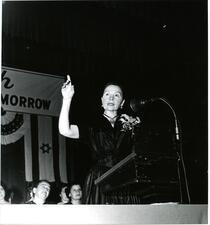
Rose Luria Halprin
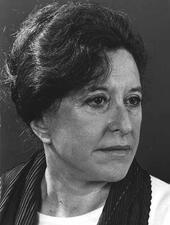
Shulamith Hareven
Born in Poland in 1930, Shulamith Hareven was an Israeli poet, author, essayist, and political activist. From capturing the lingering pain of Holocaust survivors to describing the harsh conditions of Palestinian refugee camps, Hareven used her writing to push Israelis to confront uncomfortable truths.
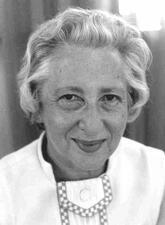
Zena Harman
Zena Harman, diplomat, parliamentarian and social innovator, helped lay the foundation for Israel's advanced network of social services, became one of Israel's foremost diplomats in Israel's formative years, and helped to establish a series of civil society organizations concerned with protecting children's rights, empowering women, and promoting greater civic engagement in public life in Israel.
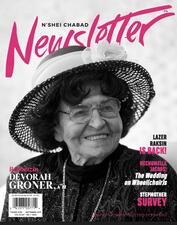
Hasidic Women in the United States
Hasidism
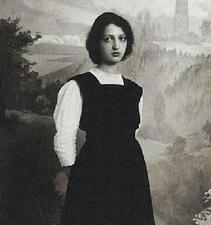
Clara Haskil
Pianist Clara Haskil was one of the greatest performers of her time. As an early prodigy, Haskil began studying music at age six and grew to have an international career, performing throughout the world and appearing at the most prestigious music festivals, in spite of chronic health challenges.
Sylvia Hassenfeld
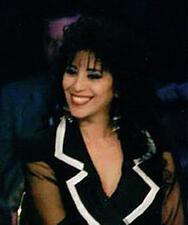
Ofra Haza
Born in Tel Aviv, Ofra Haza was an international singing sensation who performed across Europe, America, and Israel. Known for combining traditional Yemenite music with electronic pop sounds, Haza performed in the film Shlagger and in 1983 she placed second in the Eurovision competition. In 1998 Haza collaborated with many world-renowned artists and performed Naomi Shemer’s “Jerusalem of Gold” at the official ceremony marking Israel’s fiftieth anniversary.
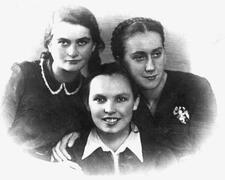
Bela Ya’ari Hazan
On the outbreak of World War II, Bela Hazan escaped her hometown of Rozyszcze, Poland, for Vilna, where she worked as a smuggler for the Dror movement. She was arrested by the Gestapo in 1942 and sent to Auschwitz, where she served as a nurse, then to Ravensbruck, and finally to Leipzig, from which she was liberated. She immigrated to Israel, where she died in 2004.
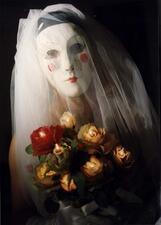
Hebrew Drama: Representation of Women
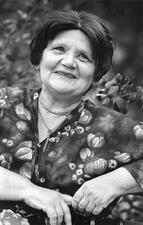
Hebrew Song, 1880-2020
Hebrew song as a whole, including songs of Erez Israel and the State of Israel, is a unique socio-cultural phenomenon that has developed over time. The dawning of Hebrew song can be traced to the period between 1880 and 1903, and it has grown to reflect the diverse aspects of Israeli society since then. The contribution of women to Hebrew songs, in general, has risen steadily over the years.
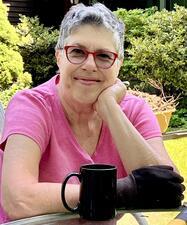
Helen Epstein
Born to two Holocaust survivors from Czechoslovakia, Helen Epstein has spent her life building an impressive journalistic career. She has also explored her own lived experiences, as well as the repercussions of intergenerational trauma from the Holocaust, on both her own family and the families of other survivors, in several memoirs and non-fiction books.
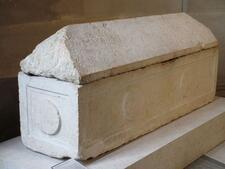
Helene, Queen of Adiabene
Helene was the sister and wife of Monabazus Bazaeus, king of Adiabene at the beginning of the first century CE. She converted to Judaism with other members of her family.
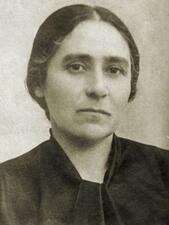
Anna Braude Heller
A brilliant pediatrician used to working in difficult circumstances, Anna Braude Heller struggled to keep children’s hospitals open through both World War I and World War II, even as the Nazis occupied Poland and placed Jews in ghettos. Although she evaded deportation in 1943, she was killed shortly afterwards when German soldiers raided the Warsaw Ghetto.
Florence Heller
An important benefactress of Brandeis University, Florence Grunsfeld Heller made her mark as one of the first women to run a general Jewish organization, the Jewish Welfare Board. She also founded the Florence Heller Graduate School for Advanced Studies in Social Welfare at Brandeis in 1959.


